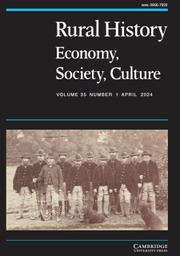This volume was conceived in order to mark the occasion of Christopher Dyer's sixty-fifth birthday. In determining the theme for this celebration of his scholarship, the editors faced the unenviable task of selecting from a body of work spanning several decades and encompassing a wide range of medieval subject matter. Nevertheless, since it is for his scholarship on the history of those who rarely figured in the historical record that Christopher Dyer is mostly known, it is fitting that this volume should focus predominantly, albeit occasionally abstractedly, on the peasantry, through the twin themes of survival and discord. Notwithstanding this tight thematic application, the contributors to this volume have produced a range of essays that manage to encompass most of the key subject matter favoured by Dyer throughout his career, whilst also acknowledging his proclivity for delving into more esoteric areas of historical enquiry usually ignored by others. This, in particular, is highlighted through Harold Fox's paper on lords and wastes. The collection of essays embraces the archaeological perspective, most notably through Astill's essay on settlement patterns. The urban environment is considered as well as the rural, with both settings being considered in Langdon's study of wages and their impact on survival. And, of great importance when considering the scholarship of Christopher Dyer, it incorporates both economic and social perspectives. In addition to the essays, there is a very useful bibliography of Dyer's work to date.
The section on survival includes a range of interpretations, as is fitting in a volume designed to highlight Dyer's varied interests. Essays range from a focus on settlement patterns, an exploration of seigneurial mentalities surrounding so called waste, and a number of studies concerned with the economy, specifically examining the overall national picture in the fifteenth century, urban credit, wages and their influence on survival, and the royal court's role in local economies. Turning to the section on discord, the themes covered naturally include local tensions and incidents of revolt. In addition to a focus on England, a wider European emphasis has been included in essays from Bas van Bavel and Samuel Cohn. Jean Birrell's study of Alrewas in Staffordshire is especially interesting since it formed part of a small secular estate, a form of settlement that has been relatively rarely studied due to problems of documentary survival. This essay also represents an uncommon foray into the realms of peasant mentalities and highlights what is achievable through close scrutiny of manorial documents, particularly neglected sources such as surveys and custumals. Matthew Tompkins’ essay on the peasant lessees of Great Horwood in Buckinghamshire is also notable for highlighting a rare example of collective peasant enterprise, and charting its development from initial fourteenth-century cooperation through to the self-interest of a very few almost three hundred years later.
Overall, this is a largely well-balanced volume, featuring studies from established and highly regarded scholars alongside emerging talent. The only very slight disappointment is the overriding emphasis on the late medieval period. Although this is the period considered most frequently by Dyer, he is nevertheless clearly a keen scholar of pre-Conquest events, contextualising later history accordingly, and so a more emphatic consideration of earlier concerns would have been a welcome addition.


